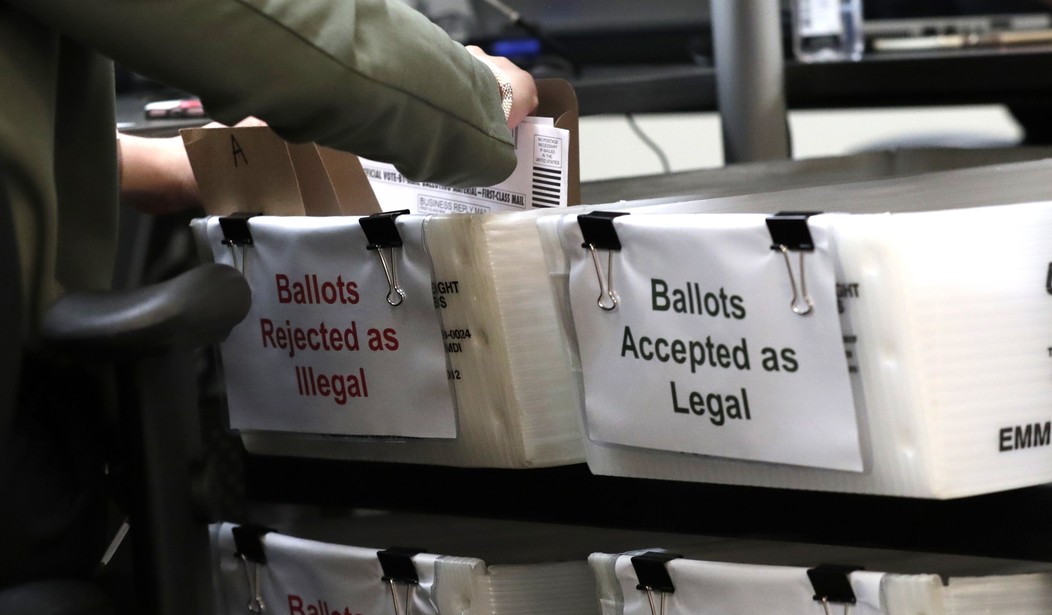It's not surprising that the presidential election between President Donald Trump and the Democratic nominee, former Vice President Joe Biden, was not decided on Election Day. The votes will continue to be counted, and there is a good chance there will be recounts in areas where counts are very close. It might very well end up in the courts.
What we do know is that Republicans gained seats in the House of Representatives and the Senate will more than likely remain Republican. While the presidency might be too close to call, we have a few clear takeaways.
First, Trump has brought about an increased interest in politics and participation. We had the highest turnout since 1900, with almost 70% of those eligible to vote projected to do so. This is fantastic.
Second, the pollsters were wrong, wrong, wrong -- again. After listening for months to pollsters' predictions of a Democratic blowout, we know that, whatever the final result, there was no Democratic blowout. From now on, when you hear "poll," think "unreliable."
Third, with the loss of Democratic seats in the House, House Speaker Nancy Pelosi will have less power. The far-left coalition will grow louder, and this could lead to a flip of the House to the Republican side in 2022.
Fourth, the country is evenly split overall, but there is also a split between major metro and rural areas. The Democrats' mantra has been that it's due to a shift in demographics in metro areas. Trump picked up vastly more support from Latino voters in Texas and Florida than he did in 2016. Starr County, Texas, is 96% Latino, the highest percentage of Latino residents of any U.S. county. With over 98% of the county votes in, Biden was up by five points, while in 2016, Democratic nominee Hillary Clinton won by more than 10 points. It appears that Trump also picked up larger percentages of black Americans.
Recommended
While Democrats have promoted the concept that demographics are destiny, they are not. Saying demographics are destiny -- lumping individuals into a group based on their demographics -- is prejudice. Democrats will be hard-pressed to accept this fact.
Fifth, we need to bring our election infrastructure into the modern world. This election appears to be moving from the voting booth into the courts. It's appalling that states can't report votes faster and on a more consistent basis. Because we are a republic and voting practices are controlled by each state's secretary of state (in Georgia, they're run and controlled by county officials), there are vast differences in how states count votes.
As Colin Kalmbacher wrote for Law and Crime on Sept. 15: "Pennsylvania Secretary of State Kathy Boockvar (D) issued guidance to counties that local election officials cannot perform on-the-spot signature analysis. Effectively, this means that ballots cannot be rejected because an election official believes the voter's signature on a ballot envelope does not match the signature on file." Additionally, in Pennsylvania, where ballots used to be counted only if they were received by 8 p.m. on election night, the state now allows for votes to be counted if they arrive by Nov. 6.
Sixth, the national press is clearly biased toward the Democratic Party. Whether this is due to their personal disdain for Trump or because they are mostly reporting from large metropolitan areas that are skewed Democratic, they don't represent the views of many Americans. With the advent of interconnectivity, online news channels and the ability to broadcast from any location in America, the traditional news media are already beginning to fracture and eventually will reconsolidate in ways we cannot imagine.
Seventh, legal pundits are going to be in demand this week as the presidential results move from vote counting to the courtroom. Expect news coverage to focus on maps of blue versus red, further polarizing the electorate.
Finally, with results this close, there is no mandate, no matter who wins in the end. We should all take a breath, step back and think about how we can work together, even with those on the opposite side of the aisle, to make our country better. It's not enough to scream that the other side is wrong. Instead of resorting to condemnation, we could all use a bit of intellectual humility and curiosity. Along the way, we might very well learn something about one another -- and ourselves.

























Join the conversation as a VIP Member